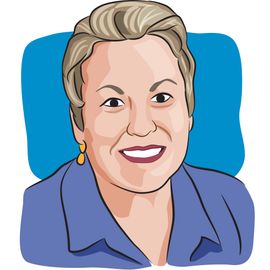- About Us
- Advertise / Support
- Editorial Board
- Contact Us
- CancerNetwork.com
- TargetedOnc.com
- OncLive.com
- OncNursingNews.com
- Terms & Conditions
- Privacy
- Do Not Sell My Information
- Washington My Health My Data
© 2025 MJH Life Sciences™ and CURE - Oncology & Cancer News for Patients & Caregivers. All rights reserved.
Survivors Need to Get Moving

Kathy LaTour is a breast cancer survivor, author of The Breast Cancer Companion and co-founder of CURE magazine. While cancer did not take her life, she has given it willingly to educate, empower and enlighten the newly diagnosed and those who care for them.
Benefits of physical activity touted.
The relationship between weight, physical activity, and survivorship took center stage at the Fifth Biennial Cancer Survivorship Research Conference in Washington, D.C. this summer. The conference brought together more than 500 researchers, clinicians, and survivors from 44 states and 10 countries for the three-day event, which was initiated by the NCI Office of Cancer Survivorship (OCS) and the American Cancer Society’s Behavioral Research Center.
Julia Rowland, PhD, director of the OCS, says the increase in interest around issues related to exercise, weight, health, and survivorship has grown out of the numerous observational studies of the survivors who asked for ways to remain healthy or become healthier after a cancer diagnosis.
“Nurses began suggesting to survivors that they be more active during treatment, and when they had permission to do that, they did,” she says, adding that research then began to take off on the potential effect of exercise on quality-of-life areas such as anxiety, depression, and fatigue.
“No one assumed it would help survival until we saw the observational studies where compelling data has begun to suggest that remaining physically active after cancer may benefit not only quality of survival but length of survival,” Rowland says.
While the results involve myriad unanswered questions surrounding weight, exercise, and how they are related to health, Rowland says it comes down to the research showing activity is good in many different ways. When activity results in weight control or loss, it becomes part of a formula known as “energy balance,” where the body is burning off what it is taking in.
Catherine Alfano, PhD, a program director at OCS, says that increased activity has been shown to result in lower obesity rates, better survival, fewer post-treatment symptoms, and improved quality of life, but the emerging questions from this knowledge are numerous.
When activity results in weight control or loss, it becomes part of a formula known as “energy balance,” where the body is burning off what it is taking in.
Alfano says it’s an exciting time in research because basic scientists are coming together with clinical scientists and behavioral scientists to focus on the issue, which pushes the science forward in new and interesting ways and directions. For example, Alfano asks, what are the biological mechanisms by which obesity and activity may influence survival?
Only well-designed randomized trials will produce the answers, she says.
While energy balance may have been a primary focus of the meeting, numerous other presenters looked at other issues affecting the more than 12 million cancer survivors in the U.S.
Research on topics as varied as rehabilitation, communication, quality of life, diversity, and problems specific to both the very young and very old survivor was presented.
Otis Brawley, MD, chief medical officer of the American Cancer Society, stressed the need for a formal ongoing way to research cancer survivors, including electronic gathering of information and information sharing. He also spoke to the growing importance and acceptance of social sciences research in cancer survivorship, reminding the audience that it was the epidemiologists who first saw the connection between smoking and cancer.
He was, as they say, preaching to the choir.
Related Content:



